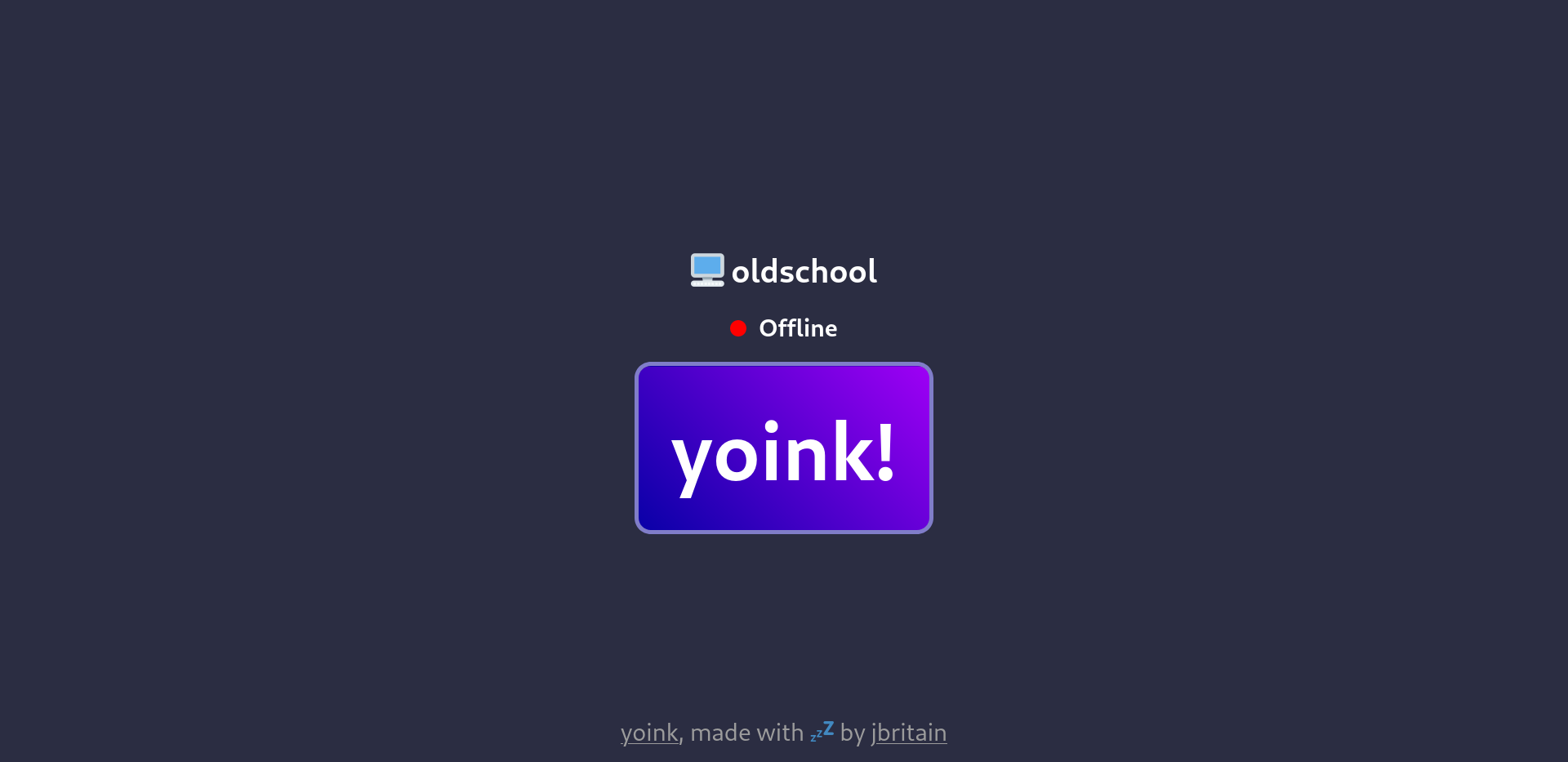yoink
A web UI for sending Wake-On-LAN (WOL) packets. An example use case for this would be to have it running on a Raspberry Pi on the same LAN as your server.

Screenshots

Installation/Usage
With Docker
The recommended method for using yoink is through Docker, with something similar to this example docker-compose.yml
services:
yoink:
image: jbritain/yoink:latest
container_name: yoink
network_mode: host
restart: unless-stopped
environment:
- NAME=YOUR_SERVER_NAME # appears at the top of the webpage
- MAC=00:11:22:33:44:55 # the target's MAC address
- IP=192.168.1.123 # the target's IP address
- PORT=8080 # port to run on
- PASSWORD=pleasechangeme # password required to access yoink, leave blank if you do not need authentication
- STATUS_INTERVAL=5000 # how often the frontend pings to request server status, in ms
- ONLINE_TIMOUT=30000 # how long before it is decided the server did not respond to the WOL ping. Has no actual effect, only means the status returns to 'offline' sooner
# - TOKEN_KEY=[YOUR_SECURE_STRING] # ONLY SET THIS IF YOU DO NOT WANT RESTARTING YOINK TO INVALIDATE SESSION TOKENS. I RECOMMEND YOU DO NOT SET THIS VALUE. IF YOU DO SET IT, DO NOT SHARE IT WITH ANYONE AS IT CAN BE USED TO REVERSE ENGINEER THE PASSWORD
With Node.js
Currently, running the app directly through Node.js is not officially supported (coming soon to a package manager near you), however you can clone the repo and npm run dev in the src folder.
